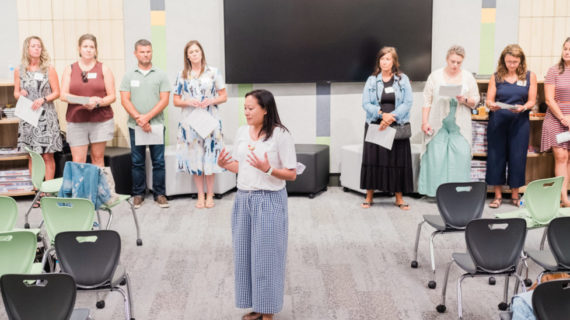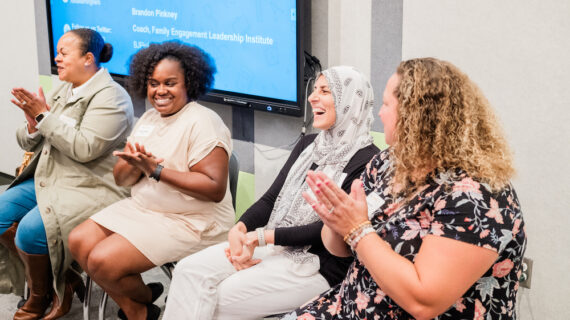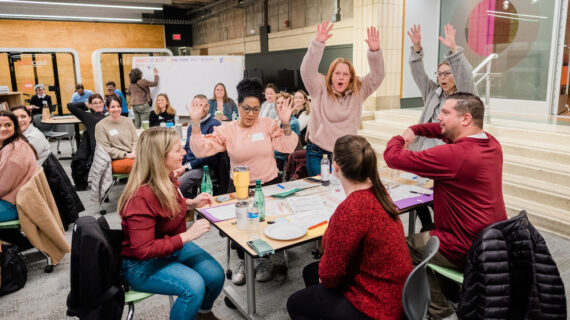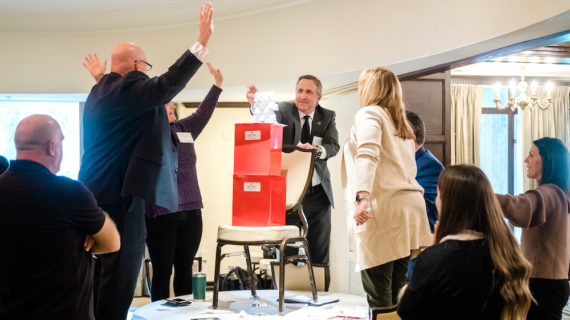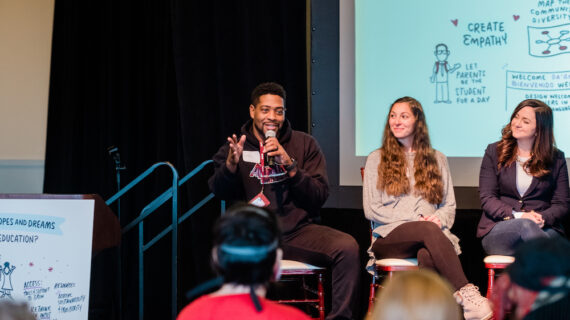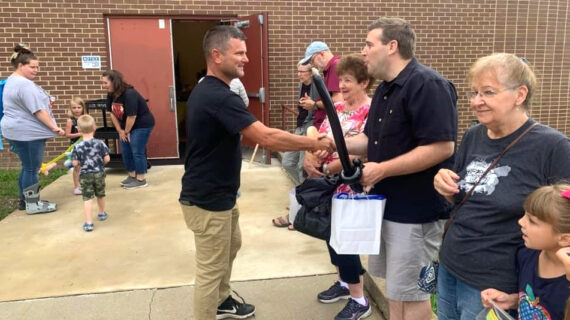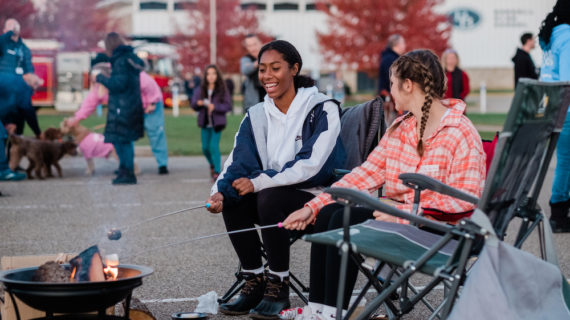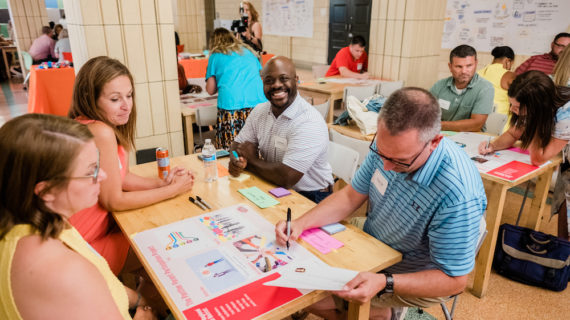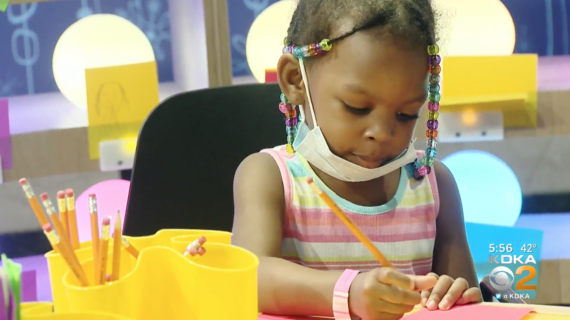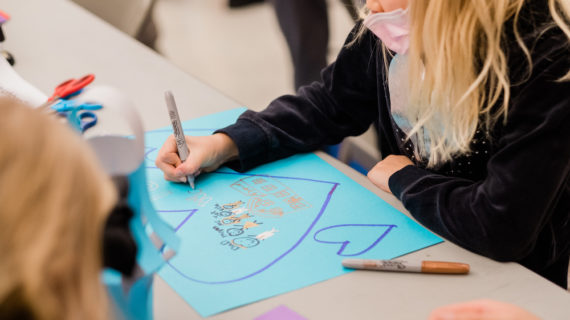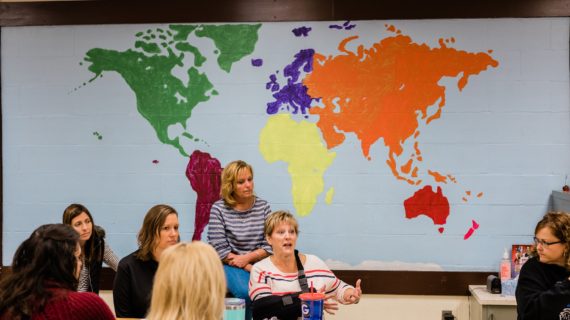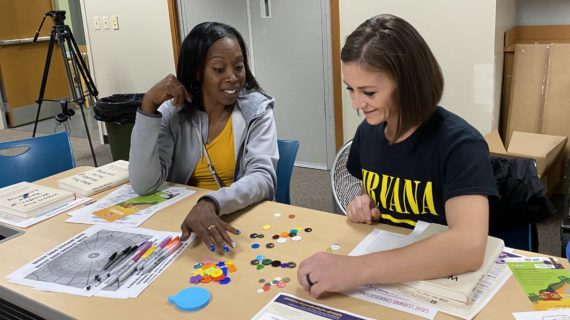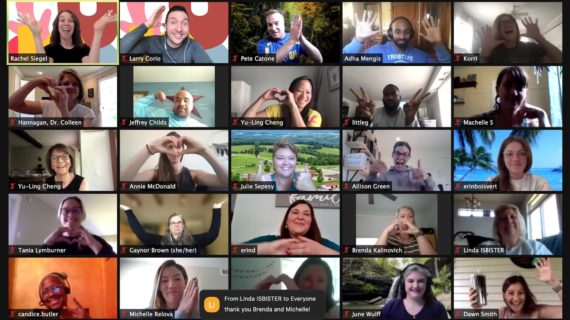
Educators gathered in Finland to explore the growing global focus on trust and relationships. Pittsburgh’s voice was there.
HELSINKI, Finland — They came from around the world, all with a common purpose – more than 100 educators, gathering to explore the future of learning and the well-being of children. And the Pittsburgh region was right in the middle of it.
Visitors traveled thousands of miles to be honored last week at the annual hundrED Innovation Summit for the projects and organizations they’ve launched – from Guatemala’s playful learning initiative Juega Conmigo to Armenia’s TUMO Centers for Creative Technologies and India’s mobile learning platform Code Mitra.
But whether they were classroom teachers, tech entrepreneurs or learning innovators who dreamed up unexpected ways of helping children, their discussions in Helsinki revolved around one vital question: How can we build the authentic relationships and meaningful trust that helps children learn and communities thrive?
STRONG PITTSBURGH CONNECTIONS
For two years, that question has been a priority for the Pittsburgh-area educators who attended the summit on behalf of Parents as Allies (PAA), an initiative that works to foster engagement between families and schools.
“It’s about being creative with how we connect to others, a willingness to listen with an open mind, and then using what we learn to make our schools and communities a better place for our students and families,” says Dr. Autumn Turk, director of curriculum and development at Burrell School District in Westmoreland County.
Along with folks from 17 other school districts in the Pittsburgh region, these educators have been working with parents and teachers in their districts to use the tools of design thinking – including eye-opening “empathy interviews” – to build trust and relationships within their school communities.
As this group spoke with dozens of other attendees and hosted a panel discussion, they offered the Pittsburgh-born message of Parents as Allies: True family/school engagement is possible in every community. With effort and a bit of creative hacking, doors can open to real understanding between schools and families. And when those relationships and that trust are built, everyone benefits.

As they shared that message, the Pittsburgh team encountered interest from educators from around the world — and the desire of these global innovators to forge relationships and learn from the work happening in Pittsburgh.
Melissa Wagner, principal at McKee Elementary in the West Allegheny School District, came to the hundrED Summit to share the core PAA message: “Lead with your heart and connect with families through empathy,” she says. “This will lead to strong and trusting relationships.”
That principle was at work in Helsinki as well. After she spoke on the Parents as Allies panel, Wagner says, “an innovator and educator from India approached me to ask if I would be willing to present virtually to their teachers in India.”
FINDING COMMON GROUND, GLOBALLY
Connections like that inspired the entire PAA group.
Watching Pittsburgh-area Parents as Allies work resonate with other people was exciting, says Turk, who attended the summit along with Melinda Kulick, her district’s technology integration coach.
For Turk, the wisdom gathered – even innovations that are designed for very different communities in other parts of the world – will be useful fodder for the future.
“Our Parents as Allies work around family engagement is different from some of the other innovations we learned about at the summit,” Turk says, “but (it) can be scalable and adaptable to fit any community, any culture, and in any geographic location.”
As she discussed PAA with summit attendees, they embraced the message that family/school engagement “doesn’t have to be expensive or elaborate.”
Avonworth Primary Center Principal Dr. Scott Miller visited two Finnish schools during the summit. He spoke with early childhood and elementary school teachers about their work – and about the growing focus on child well-being that was the theme of Helsinki Education Week, a celebration of Finland’s education system that coincided with the hundrED Summit.
In Helsinki, Miller says, “directors, teachers and the students are trusted in their approach to learning, play and social development.”
“This trust has allowed a robust curriculum to unfold that is responsive to the students and the desires of the child,” he says. “Students are viewed as drivers in the educational process.”
That trust leads to effective learning and healthy communities in Helsinki, just as the trust and relationships built through Parents as Allies have begun changing lives in communities across the Pittsburgh region.

During the PAA panel discussion, Northgate Elementary principal Dr. Joseph Peacock shared about the power of relationships to connect parents and teachers. In many school, he pointed out, 20% of the parents are involved in most everything and the remaining 80% are less connected. But by building authentic relationships, “we’re reaching beyond them,” Peacock told the summit audience. “One of my biggest takeaways from the whole program altogether is who we’ve been able to reach in that shared vision of what is important for kids.”
Early in the Parents as Allies project, Pittsburgh educators learned about research from the Brookings Institution that explores what parents and teachers see as the purpose of school.
Though both groups assumed the other prioritized academics and preparing kids for future jobs, those assumptions proved false: In many countries, both parents and teachers cared most about students’ well-being and their readiness to be ethical, productive members of their community.
Dr. Thomas Washington, superintendent at Crawford Central School District in Crawford County, shared these findings with others during the summit. Each time the subject came up, he says, he saw powerful recognition from Finnish educators and visitors from around the world – a sense that even among disparate cultures and systems, some common things surface.
“In Helsinki, they believe that if we invest in the person – their well-being and making them a well-rounded learner – then they will grow up to take care of the community,” Washington says. “We can all learn the lesson – and we are learning the lesson – that if we take care of the person, that person will take care of our society and make it a better place.”
